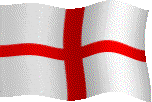Encyclopédie Marikavel-Jean-Claude-EVEN/Encyclopaedia/Enciclopedia/Enzyklopädie/egkuklopaideia

England Bro-Saoz |
blason ou logo en attente |
Northumberland ***** |
|
Rudchester Vindobala |
| pajenn bet digoret an 06.09.2006 | page ouverte le 06.09.2006 | |
* forum du site Marikavel : Academia Celtica |
dernière mise à jour 01/08/2021 20:43:27 |
![]()
| Définition : ville d'Angleterre; comté de Northumberland. Ancienne forteresse romaine du Mur d'Hadrien : Vindobala. |
|
![]()
|
Extrait de la carte Ordnance Survey : Map of Roman Britain. |
![]()
Histoire : |
![]()
| Étymologie :
* Rivet & Smith : SOURCES - Ravenna 10725 (= R&C 145) : VINDOVALA - ND XL36 : Tribunus cohortis primae Frixagorum, VINDOBALA DERIVATION. The first element is British *uindo- 'white', also 'bright, fair' and 'happy, fortunate', now represented by Welsh gwyn; also Old Irish find, Irish finn, fionn (English winter 'white time'). This is a first element in the five following names, and is frequently represented in Continental toponymy from Illyria and Pannonia to Spain; it is also present in many personal names, e.g. British Vindomorucus (RIB 2053, Drumburgh). In some Continental regions Celtic *uindo- is to be distinguished from an element of similar appearance, *vin- *vin-t-, a pre-Indo-European word meaning 'mountain' (Rostaing ETP 290). Examples of names with *uindo- which survive include Vindobona > Vienna, Vindonissa > Windisch (Switzerland) and Vindobriga > Vendoeuvre (eight in France and one in Switzerland). The second element requires us to trust ND's -bala rather than Ravennas -vala (ND is in any case the more trustworthy of the two texts). The name hardly con-tains the root *ual- 'strong', as R&C thought, for if it did, we should expect it to appear as -valium (or -vallum) in the present name, as in othcr British examples (see BANNOVALIUM). Moreover, R&C's meaning 'white strength' seems unnatural. Nor is it likely that both ND and Ravenna have committed identical errors in miscopying r as l, despite the temptation to make an association with a *Vindovara 'eau blanche' postulated by Dauzat in Gaul (TF 116-17), and there is no consonant present in the British name which could have provoked an r-l metathesis. If we take -bala, it seems right to associate mis with the root *bal- discussed under *Nemetobala; a meaning for the whole of 'white peak', perhaps 'bright peak', seems proper. IDENTIFICATION. The Roman fort at Rudchester, Northumberland (NZ 1167). ND's unit name is evidently a garbled form of Cohors I Frisiavonum, whose earlier presence in Britain is attested by diplomas and who probably formed the garrison of Rudchester in the third century (see RIB 1395, note). |
![]()
| Sources :
* Eilert Ekwall : The Concise Oxford Dictionary of English place-names. Clarendon Press. fourth edition, 1980. * Ordnance Survey : Map of Roman Britain. * ALF Rivet & Colin Smith : The Place-Names of Roman Britain. Batsford Ltd. London. 1979. |
![]()
|
Sites Internet traitant de Rudchester / Vindovala
:
* lien communal : http://www.rudchester.org/index.html* autres liens : http://rudchester.org/fort.html * pajenn Wikipedia brezhonek : (en cours de montage / war ar stern) * forum du site Marikavel : Academia Celtica * Autres pages de l'encyclopédie Marikavel.org pouvant être liées à la présente : http://marikavel.org/heraldique/bretagne-familles/accueil.htm http://marikavel.org/broceliande/broceliande.htm * solidarité nationale bretonne avec le département de Loire Atlantique : Loire-Atlantique * sauf indication contraire, l'ensemble des blasons figurant sur cette page ont été dessinés par J.C Even, sur bases de GenHerald 5. * Introduction musicale de cette page : Bro Goz Ma Zadoù, hymne national breton, au lien direct : http://limaillet.free.fr/MP3s/BroGoz.mp3 hast buan, ma mignonig, karantez vras am
eus evidout go fast, my little friend, I love you very much |
![]()